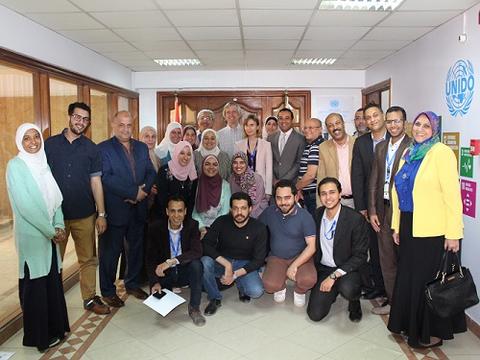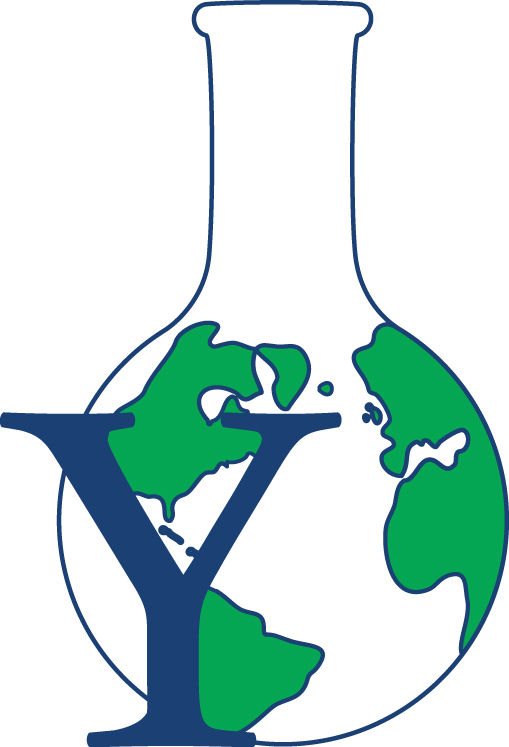
The final Train-the-Facilitators workshop has been successfully completed.
April 2019 marks the last Train-the-Facilitators workshop in Green Chemistry, which was developed in collaboration with United Nations Industrial Development Organization (UNIDO), and funded by the Global Environment Facility (GEF). The workshop was the sixth in a global series and was delivered by international green chemistry experts to empower local stakeholders to become catalysts of green chemistry and to disseminate green chemistry to communities.
The Workshop was hosted in Cairo from April 7-11, 2019 by UNIDO and was held at the UNIDO headquarters in Egypt.
28 participants attended the workshop and represented academia (Ain Shams University, Cairo University, Mansoura University, American University, Zewail City for Science and Technology), Government and Non-Government Organizations (Chamber of Chemical Industries, National Research Center, Ministry of Trade and Industry, Egyptian Environmental Affairs Agency (EEAA), Egyptian Organization for Standardization, NCPC-Egypt), and Industry (Tagaddod Company, AKIRA Company for Biodiesel Production). Representatives from NCPC-Jordan also attended the workshop.
Much like the recent Train-the-Facilitator workshops held in Sri Lanka, Serbia, South Africa, Brazil, and Colombia, the workshop delivered in Egypt provided stakeholders with the knowledge and inspiration to disseminate green chemistry within their communities. The event was delivered by Professor Philip Jessop from Queens University, who was assisted by Dr. Karolina Mellor from the Center for Green Chemistry & Green Engineering at Yale. During the 5-day workshop participants were instructed on a wide range of topics to equip them with tools to become green chemistry facilitators. These topics included green chemistry and economic advantage, green chemistry and its role in sustainability, and benefits of green chemistry in different sectors: feedstocks, solvents, energy, catalysis, waste, and new molecules with reduced hazard. The workshop allowed participants to discuss green chemistry as a group and participate in several hands-on exercises that focus on green chemistry tools and practices.
The workshop ended with the presentation of green chemistry initiatives and technologies which are currently being developed in Egypt. Inspirational talks and experiences were shared by TCI Sanmar and Tagaddod Companies. In addition to industrial case studies, participants also shared their academic research in green chemistry on algae for water treatment and reduction of persistent organic pollutants (POPs).
“I am so grateful that I was able to participate in all six workshops” – said Dr Karolina Mellor, program manager at the Center for Green Chemistry and Green Engineering at Yale. “It was very encouraging to see dedication and enthusiasm of workshop participants. I believe this will translate into green chemistry implementation in both academia and industry. The workshop in Egypt ended on a very strong note.”
